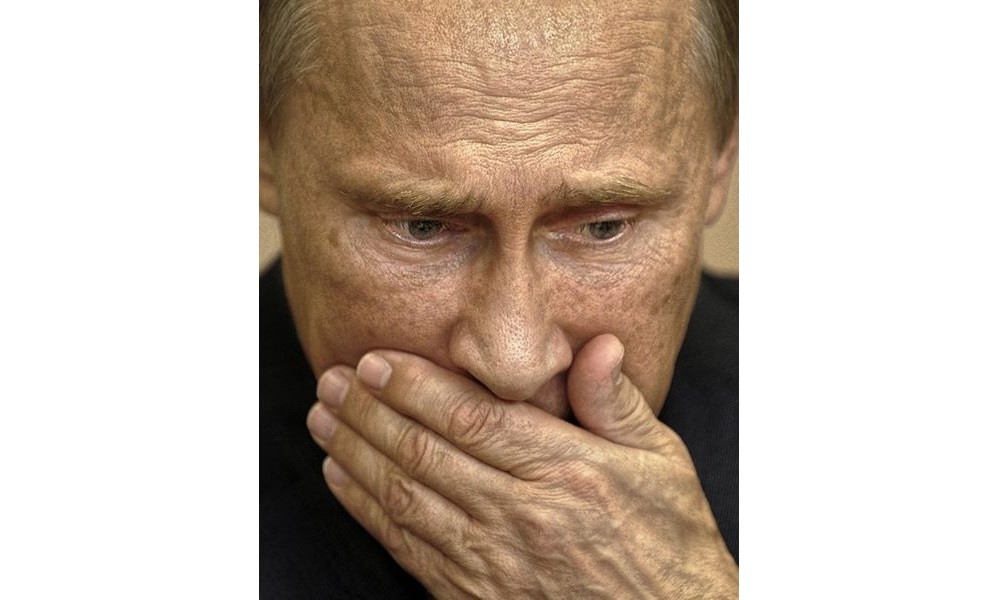As the gap between what Vladimir Putin says and does and what Russians see around them widens, ever more analysts offer convoluted explanations for what is going on, but Aleksey Shaburov argues that much of this is unnecessary over-interpretation and that the Kremlin leader’s actions are driven “not by clever plans” but by “two simple reflexes.”
The editor of Yekaterinburg’s Politsovet portal says that
Among examples of this are last year’s pension reform and tax increases, steps taken not because of some grand plan, Shaburov says, but rather reflexively as a result of declines in income from other sources such as the sale of oil and gas abroad or smaller tax receipts because of declines in economic activity.
The regime’s “reform” of trash collection is the same: as a result of changes, Russians have to pay and the state receives “several times more” money than it did before. Paid parking in the major cities also takes more money from the citizenry and gives it to those in the Putin elite.
One hardly needs to be “a profound analyst” to understand: “such actions inevitably lead to the increase in anger in society. Last year, the ratings of the powers that be crashed after the pension reform and six months later haven’t recovered. Sociologists, even those close to the authorities find a growth in dissatisfaction. But the powers aren’t changing their behavior.”
Shaburov says that it sometimes seems that “this is being done specially, that someone intentionally wants to anger Russians in order to achieve some political goal. But most likely this isn’t the case. This is simply a reflex action.”
According to the Yekaterinburg commentator,
The latest manifestation of this, Shaburov continues, is the package of draft laws proposed by Senator Andrey Klishas, which include introducing “administrative responsibility up to arrest for a demonstration on the Internet of an obvious lack of respect for the organs of power.” The bill’s provision in regard to that is so broad that anyone could fall afoul of such a law should the authorities want to bring charges.
But there are also signs that the Kremlin may even arrest those close to it. Several Telegram channels are reporting that “about 20 governors” may be arrested, and observers say that the regime plans to give the siloviki ever more powers in politics, “with more prohibitions and arrests” thus likely.
“The desire to put pressure on everyone who moves and thus may present some even minimal threat is a reflex” not a policy, Shaburov continues.
Shifting one’s analytic perspective to reflexes “explains a lot,” he says. Reflexes in life forms “work even when the brain and the central nervous system are no longer functioning. Applied to politics, this can mean that there is no plan or strategy in fact,” even when leaders suggest there is. After all, they say that “because they have to say something.”
But on the other hand, “reflexes are not senseless: their task is to help one survive.” And in Russia today, “self-preservation may be considered the most important and even the only task of the powers that be.” They aren’t making plans beyond trying to do what will keep them in power as long as possible, and the two reflexes help them do so.
Relying on them alone, Shaburov says, will allow the authorities to hold on for a certain time, but “not forever,” a task that reflexes alone cannot solve.
Further Reading:
- Ukrainian autocephaly a defeat for Putin but a victory for a future Free Russia, Illarionov says
- Growing Russian nostalgia for Soviet past far more dangerous than it appears, Kirillova says
- 1001 pro-Kremlin disinformation messages: Ukraine remains top target
- Top absurd Russian fakes: what didn’t happen in 2018
- 2019 will be ‘a year without Crimea” for Putin, Portnikov says
- Because of Putin, 2019 will be a repeat of 1939, Muzhdabayev says
- Belarus already under Russian troll attack designed to give Moscow a base for further aggression
- Ever more Russians want to go ‘back to the USSR’ but ever fewer Ukrainians do




